|
Local Talent Ascends: Nicole Doolan Named Director at SH Tait & Co
SH Tait & Co is pleased to announce the appointment of Nicole Doolan as a Director of the firm, effective July 1, 2024. Nicole has been an invaluable part of our team since 2004, and we are thrilled to have her step into this new leadership role. "Nicole's journey with us has been remarkable, and her promotion to Director is a testament to her hard work, dedication, and commitment," said Managing Director Adam Parrish. "Her extensive experience and unwavering dedication to our clients make her a perfect fit for this position." Nicole's professional journey began in Mackay, where she was born and completed her schooling and university studies. She joined SH Tait & Co as a graduate accountant in 2004, the same year she earned her Bachelor of Business Accounting and Bachelor of Business Information Systems (with distinctions). In 2008, she was admitted as a member of Chartered Accountants Australia & NZ, and she is also a Registered Tax Agent. Reflecting on her promotion, Nicole said, "I am honored and excited to join the ranks of Director at SH Tait & Co. Since starting here as a graduate accountant, I have built strong relationships with our clients and staff. My parents, who have been sugar cane farmers for over 40 years, instilled in me the values of hard work, dedication, and commitment, which I have applied to my career. I look forward to continuing to serve our clients and help them achieve their business goals." Over the past 20 years, Nicole has provided taxation and business services to a wide range of clients in various industries, including primary production, mining, construction, and professional services. Her extensive knowledge and expertise have been instrumental in the success of many of our clients. Nicole joins fellow directors Adam Parrish, Stephen Amos, Monica McKendry, John Philps, and Kristelle Lamb in continuing to provide expert knowledge and exceptional service to our clients. "Nicole's appointment is exciting news for our firm," said Monica McKendry. "She is highly respected by both our team and clients, and her promotion strengthens our leadership team." Stephen Amos added, "The best asset to your business is an accountant who cares about you, your business, and your goals. At SH Tait & Co, that's exactly what you'll find. Nicole's commitment and expertise make her an excellent addition to our team of Directors, Accountants, and Tax Agents." SH Tait & Co is a Chartered Accounting Practice that has been providing accounting, taxation, and auditing services to local Mackay businesses since 1924. Nicole's promotion to Director reinforces our commitment to delivering outstanding service and building lasting relationships with our clients.
0 Comments
Your Checklist
Tax saving strategies prior to 1 July 2024 A strategy often used to reduce taxable income (and, in turn, tax payable) in an income year is to bring forward any expected or planned deductible expenditure from a later income year. This is even more valuable in the 2023/24 income year, as tax cuts are broadly being implemented for most individual taxpayers from 1 July 2024 (meaning deductions will generally have more impact if they are claimed in the 2023/24 tax return). Get the checklist here
ATO's three focus areas this tax time The ATO will be taking a close look this 'tax time' at the following common errors made by taxpayers: Work related expenses: Taxpayers using the 'revised fixed rate method' of calculating a working from home deduction must have comprehensive records to substantiate their claims, including records that show the actual number of hours they worked from home, and the additional running costs they incurred to claim a deduction. Rental properties: Performing general repairs and maintenance on a rental property can be claimed as an immediate deduction. However, expenses which are capital in nature (such as initial repairs on a newly purchased property) are not deductible as repairs or maintenance. Failing to include all income in tax return: The ATO warns taxpayers against rushing to lodge their tax return on 1 July. If they have received income from multiple sources, they need to wait until this is pre-filled in their tax return before lodging. End of financial year obligations for employers The ATO reminds employers they need to keep on top of their payroll governance. This includes: using their tax and super software to record the amounts they pay; withholding the right amount of tax; and calculating superannuation guarantee ('SG') correctly. As 30 June gets closer, employers should check their reporting obligations, along with any upcoming key dates, including for: PAYG withholding — From 1 July, the individual income tax rate thresholds and tax tables will change, which will impact their PAYG withholding for the 2025 tax year; SG rate change — From 1 July, the SG rate will increase to 11.5%. Employers must pay their SG contributions by 28 July in full, on time and to the right fund; and Single touch payroll ('STP') reporting — Employers should remember to make STP finalisation declarations by 14 July for all employees the employer has paid during the financial year, and also check their employees' year-to-date amounts are correct Getting trust distributions right As trustees prepare for year-end distributions, they should do the following: review the relevant trust deed to ensure they are making decisions consistent with the terms of the deed; consider who the intended beneficiaries are and their entitlement to income and capital under the trust deed; notify beneficiaries of their entitlements, so that the beneficiaries can correctly report distributions in their tax returns; consider whether the trust has any capital gains or franked distributions they would like to stream to beneficiaries; and check any requirements under the trust deed governing the making of trustee resolutions (e.g., that the resolution must be in writing). In any case, resolutions regarding distributions need to be made by the end of the income year. Support available for businesses experiencing difficulties By paying their tax bill in full and on time, taxpayers can avoid paying the general interest charge ('GIC'), which is currently 11.34%, and which accrues daily for any overdue debts. The ATO advises taxpayers that, if their business is dealing with financial difficulties, there are some options to help make their tax bill "less taxing". Taxpayers who are struggling to pay in full or on time may be eligible to set up a payment plan. If they owe $200,000 or less, they may be able to do this themselves using online services. If they cannot do so, or they owe more than $200,000, they can contact the ATO to discuss their options. Taxpayers can ask the ATO to remit their GIC. The ATO will then consider whether the tax bill was paid late because of circumstances that were: beyond the taxpayer's control, and what steps the taxpayer took to relieve the effects of those circumstances; or within the taxpayer's control, but led to results that the taxpayer could not foresee. If you need assistance in relation to paying your tax bill, please contact our office. Minimum yearly repayments on Division 7A loans To avoid an unfranked dividend under the Division 7A rules, loans from a private company to its shareholders or their associates must be either repaid in full or be covered by a 'Division 7A complying loan agreement' before the company's lodgment day. Complying loan agreements require minimum yearly repayments ('MYRs') comprising of interest and principal to be made each year, starting from the income year after the loan is made. Taxpayers must ensure they can meet the required MYRs on complying loans. If they miss the MYR or do not pay enough in an income year, the shortfall may be treated as an unfranked dividend. Note also that borrowing additional amounts from the same company, directly or indirectly, to make repayments on complying loans may result in the repayment not being taken into account in working out if the MYR has been made. When making MYRs, borrowers need to: start repayments in the income year after the complying loan was made; use the correct benchmark interest rate (8.27% for the 2024 income year) to calculate the MYR for the current year; and make the required payments on the loan by the due date — the end of the income year (i.e., usually by 30 June). ATO issues notice of crypto assets data-matching program The ATO has advised that it will acquire account identification and transaction data from crypto designated service providers for the 2024 to 2026 income years. This data will include the following: client identification details (names, addresses, dates of birth, phone numbers, social media accounts and email addresses); and transaction details (bank account details, wallet addresses, transaction dates, transaction times, transaction types, deposits, withdrawals, transaction quantities and coin types). The ATO estimates that records relating to approximately 700,000 to 1,200,000 individuals and entities will be obtained each financial year. The data will be acquired and matched to ATO systems to identify and treat clients who failed to report a disposal of crypto assets in their income tax return. Please note: Many of the comments in this publication are general in nature and anyone intending to apply the information to practical circumstances should seek professional advice to independently verify their interpretation and the information’s applicability to their particular circumstances.
Government warns of 'malicious' myGov scammers The Government has urged Australians to be vigilant regarding scammers who target ATO login details to commit tax fraud. The ATO has received a large number of reports of scammers using fake myGov sites to steal myGov sign-in details, which can be used to commit tax and refund fraud in other people's names. These criminals will often use text message or email to lure people into clicking a link using phrases such as 'You are due to receive an ATO Direct refund' or 'You have a new message in your myGov inbox - click here to view'. The Government says the ATO or myGov will never send an email or text message with a link to sign in to myGov. Last year, the ATO introduced new fraud controls to help protect Australians from online identity theft. This included using myGovID to strengthen security during the sign-in processes on myGov accounts, making it more difficult for criminals to gain access. What to know about disaster relief payments Taxpayers should be aware that some natural disaster relief payments are not taxable. Businesses that have received a government support payment because of a natural disaster (such as a major weather event) should check if they need to include this as assessable income in their tax return before they lodge (although they may not need to pay tax on the payment). Provided that they meet the criteria, taxpayers can treat some support payments as 'non-assessable, non-exempt income', which means they do not need to include them in their tax return. Taxpayers can refer to the ATO's website (or check with us) for more information in this regard, including in relation to the criteria that needs to be satisfied. Illegal early access to super Faced with tough times, some people may be thinking about accessing their super early. Taxpayers may have been approached by someone (a 'promoter') claiming that members of super funds can withdraw their super or use an SMSF to pay off debts, buy a car, or pay for a holiday. The ATO warns taxpayers that this is illegal. Super funds should remind members that super is for retirement. Members need to meet very strict conditions to access their super early, and accessing their super outside of these strict conditions is illegal. Illegal early access to super can have a significant impact on members' retirement savings, result in additional tax, penalties and interest, and lead to members being disqualified from ever being able to be an SMSF trustee again. When a trustee is disqualified, their name is published and this can affect their personal and professional reputation. If a promoter gets a member to provide them with enough personal information, they may also steal their identity and use it to access their super for themselves. ATO issues warning about false invoicing arrangements The Serious Financial Crime Taskforce ('SFCT') is warning businesses about using illegal financial arrangements such as 'false invoicing' to cheat the tax and super systems. False invoicing arrangements may consist of the following: an entity (the 'promoter') issues invoices to a legitimate business but no goods or services are provided; the business pays the invoices, by cheque or direct transfer, and the promoter returns most of the amount paid to the owners of the business as cash; the promoter keeps a small amount as a commission; the business then illegally claims deductions and GST input tax credits from the false invoice; and the owners of the business use the cash they have received for private purposes or to pay cash wages to workers, and do not properly report the amounts in their tax returns. The SFCT is warning businesses against using these types of arrangements, and that they "will get caught and face the full force of the law." NFPs need to get ready for new return From 1 July 2024, non-charitable not-for-profits ('NFPs') with an active Australian Business Number ('ABN') will be required to lodge a new annual NFP self-review return with the ATO to confirm their income tax exemption status. Editor: This will include sporting, community and cultural clubs, among other organisations. Non-charitable NFPs that have an active ABN can get ready now by: conducting an early review of their eligibility by using the 'ATO's guide' on the ATO's website; checking all their details are up to date, including authorised associates, contacts and their addresses; reviewing their purpose and governing documents to understand the type of NFP they are; and setting up myGovID and linking it to the organisation's ABN using 'Relationship Authorisation Manager'. When it comes time to lodge, NFPs can use Online services for business which lets organisations manage their reporting at a time that is convenient for them. If an NFP has engaged a registered tax agent, their agent can also lodge on their behalf through Online services for agents. The first return is for the 2023/24 tax year and NFPs will need to prepare and submit their annual self-review between July and October 2024. As an interim arrangement for the 2023/24 transitional year, eligible NFPs unable to lodge online will be able to submit their NFP self-review return using an interactive voice response phone service. Taxpayer unsuccessful in having excess contributions reallocated The Administrative Appeals Tribunal ('AAT') recently held that a taxpayer was liable to pay excess concessional contributions tax in relation to contributions made on his behalf by his employer. In the 2021 income year, the taxpayer's employer made concessional super contributions to his super fund totalling $31,737, which resulted in the taxpayer exceeding his concessional contributions cap for the 2021 year by $6,737. The AAT upheld the ATO's decision not to exercise its discretion to reallocate the excess contributions to another year, on the basis that there were no 'special circumstances' under the relevant legislation that would allow the ATO to do so. The AAT noted that "The difficulty for the (taxpayer) is that he accepts that there was never any certainty around when his employer would pay contributions into his super fund and that there was no written agreement or even a verbal agreement that set out the timing of the payments into his super fund. As such it was not unusual for his employer to pay the (taxpayer's) concessional contributions into his super fund at differing times." Please note: Many of the comments in this publication are general in nature and anyone intending to apply the information to practical circumstances should seek professional advice to independently verify their interpretation and the information’s applicability to their particular circumstances.
How to claim working from home expenses Taxpayers who have been working from home this financial year, and who consequently incurred work-related expenses, have two ways to calculate their work from home deduction: the actual cost method; or the fixed rate method. Using the fixed rate method, taxpayers can claim a rate of 67 cents per hour worked at home. This amount covers additional running expenses, including electricity and gas, phone and internet usage, stationery, and computer consumables. A deduction for these costs cannot be claimed elsewhere in their tax return, although taxpayers can separately claim any depreciating assets, such as office furniture or technology. Taxpayers need to have the right records, and the record-keeping requirements differ for the fixed rate method and the actual cost method. If you need more information regarding making these claims, please contact our office. Reminder of March 2024 Quarter Superannuation Guarantee (‘SG’) Employers are reminded that employee super contributions for the 1 January 2024 to 31 March 2024 quarter must be received by the relevant super funds by 28 April 2024 (which is a Sunday), in order to avoid being liable to pay the SG charge. Using the ATO's small business benchmarks The ATO has updated its small business benchmarks for 2021-22. These benchmarks help taxpayers compare their business turnover and expenses with other small businesses in the same industry. Taxpayers can access the benchmarks on the ATO's website, and then calculate their benchmark using the ATO app 'Business performance check' tool. For example, consider Deb who runs a pizza shop as a sole trader. She would like to track her business against other pizza shop businesses, and see how she can improve. Deb downloads the ATO app and opens the 'Business performance check' tool. She uses this tool to work out the cost of sales to turnover benchmark for her pizza shop. It is within the higher end of the range and above the average for pizza shop businesses. Deb works out her main supply costs. She then negotiates a better deal to reduce her business expenses and improve profit. Quarterly TBAR lodgment reminder SMSFs must report certain events that affect any member's transfer balance account ('TBA') quarterly using transfer balance account reporting ('TBAR'). These events must be reported even if the member's total superannuation balance is less than $1 million. SMSF trustees must report and lodge within 28 days after the end of the quarter in which the event occurs, although they are not required to lodge if no TBA event occurred during the quarter. For example, if an SMSF had a TBA event in the quarter ending 31 March 2024, the trustee of the SMSF must lodge a TBAR by 28 April 2024. If an SMSF does not lodge a TBAR by the required date, the member's TBA may be adversely affected. The member may need to commute any amounts in excess of their transfer balance cap and pay more in excess transfer balance tax. If you need assistance in relation to any of these issues, please contact our office. Prepare for upcoming lodgments of SMSF annual returns SMSFs need to appoint an auditor no later than 45 days before they lodge their SMSF annual return ('SAR'). In preparation for lodgment of the SAR, SMSF trustees also need to: complete a market valuation of all the SMSF's assets; prepare the SMSF's financial statements; and provide signed copies of documents to their auditor, so the auditor can determine the SMSF's financial position and its compliance with superannuation laws. If an SMSF's SAR is more than two week's overdue, and the SMSF trustee has not contacted the ATO, the ATO will change the status of the SMSF on Super Fund Lookup to 'Regulation details removed', and this status will remain until any overdue lodgments are brought up to date. Taxpayer who lived and worked overseas found to be tax resident The Administrative Appeals Tribunal ('AAT') recently held that a taxpayer was a tax resident of Australia, even though he was mostly living and working overseas during the relevant period. The taxpayer was born in Vietnam and obtained Australian citizenship in 1978. He was living and working in Dubai, United Arab Emirates from 2015 until 2020. The taxpayer spent less than two months in Australia for each of the 2017 to 2020 income years visiting his family. The AAT nevertheless held that he was a tax resident of Australia for each of the 2016 to 2020 income years, as he "maintained an intention to return to Australia and an attitude that Australia remained his home". The AAT noted in this regard that the taxpayer: left his wife and three daughters in the family home in Australia while he worked in Dubai, continued to fully support his family financially, and chose to spend each of his leave periods with his family in Australia; maintained his vehicle registrations and Australian drivers licence so he could use the vehicles upon his return to Australia; intended to retire in Australia; failed to demonstrate any connection with Dubai outside of his employment; and maintained his private health insurance. Earning income for personal effort Taxpayers should remember that, if over half their income is from a contract for their personal effort or skills, then their income is classified as personal services income ('PSI'). Taxpayers can receive PSI in almost any industry, trade or profession, e.g., as a financial professional, IT consultant, construction worker or medical practitioner. Taxpayers who earn PSI while running a business (e.g., as a contractor) need to work out if they were a personal services business ('PSB') in the year that they received the PSI, as this will affect the deductions they can claim. Taxpayers can self-assess as being a PSB if they: meet the 'results test' for at least 75% of their PSI, or meet one of the other PSB tests (i.e., the unrelated clients test, the employment test, or the business premises test), and less than 80% of their PSI is from the same entity and its associates. Taxpayers who self-assess as a PSB still need to report their PSI in their income tax return and keep certain records. Please note: Many of the comments in this publication are general in nature and anyone intending to apply the information to practical circumstances should seek professional advice to independently verify their interpretation and the information’s applicability to their particular circumstances.
Super contribution caps to rise The big news story for those contributing to super is that the contribution caps are set to increase from the 2025 income year. The concessional contribution cap will increase from $27,500 to $30,000. This 'CC' cap is broadly applicable to employer super guarantee contributions, personal deductible contributions and salary sacrificed contributions. The non-concessional contribution cap will increase from $110,000 to $120,000. This 'NCC' cap is generally applicable to personal non-deductible contributions. The increase in the NCC cap also means that the maximum available under the three-year bring forward provisions will increase from $330,000 to $360,000. This is provided that the 'bring forward' is triggered on or after 1 July 2024. The 'total superannuation balance' threshold for being able to make non-concessional contributions (and the pension general transfer balance cap) will remain at $1.9 million. Small business concessions The ATO has recently issued a reminder that small business owners may be eligible for concessions on the amount of tax they ultimately pay. This depends on their business structure, their industry and their aggregated annual turnover. For example, small business owners who have an aggregated annual turnover of less than: $2 million can access the small business CGT concessions; $5 million can access the small business income tax offset; and $10 million can access the small business restructure roll-over. The ATO expects small business owners to check their eligibility each year before they apply for any of these concessions. Furthermore, taxpayers generally need to keep records for five years to prove any claims they make. We are always on the look-out for what tax concessions may be of use to our clients based on their individual circumstances. These small business concessions in particular, can be very beneficial when applicable. FBT time is fast approaching! The ATO has advised employers that 'FBT time' is just around the corner, and they need to stay on top of their fringe benefits tax (FBT) obligations. Employers need to ensure they have attended to the following matters this FBT time: Identify if they have an FBT liability regarding fringe benefits they have provided to their employees or their associates between 1 April 2023 and 31 March 2024. Identify if they have an FBT liability as they will need to lodge an FBT return and pay the amount due by 21 May. Identify if they are currently registered for FBT and let the ATO know if they do not need to lodge an FBT return (Editor: by asking us to lodge an FBT non-lodgment notice) to prevent the ATO seeking a return from them at a later date. Employers should also remember that when the new FBT year starts on 1 April, they can choose to use existing records instead of travel diaries and declarations for some fringe benefits. Furthermore, the ATO has released PCG 2024/2 which provides a short cut method to help work out the cost of charging electric vehicles ('EV') at an employee's home for FBT purposes. Eligible employers can choose to use either the EV home charging rate of 4.2 cents per kilometre or the actual cost. Ultimately, all employers need to make sure they understand their FBT obligations and the records they need to keep to avoid an FBT liability. Jail sentence for fraudulent developer A developer who conspired to lodge fraudulent business activity statements has been convicted and sentenced to 10 years in jail with a non-parole period of six years and eight months. The developer was involved with two companies that formed part of a group known as the 'Hightrade Group' which developed properties such as a hotel and golf course in the Hunter Valley, NSW. The developer fraudulently obtained GST refunds by using three tiers of companies (developers, building companies and suppliers) to grossly inflate the construction costs of his developments. The companies he was involved with also claimed to have purchased goods when no such purchases had occurred. In total, the developer intended to cause a loss to the Commonwealth of more than $15 million. His sentencing has closed a complex case, known as Operation 4. The ATO noted that "Tax crime, like the fraud uncovered in Operation 4, affects the whole community." Penalties soon to apply for overdue TPARs Businesses that pay contractors to provide certain services may need to lodge a Taxable Payments Annual Report (TPAR) by 28 August each year. From 22 March, the ATO will apply penalties to businesses that: have not lodged their TPAR from 2023 or previous income years; have received three reminder letters about their overdue TPAR. Taxpayers that do not need to lodge a TPAR can submit a 'non-lodgment advice form'. Taxpayers that no longer pay contractors can also use this form to indicate that they will not need to lodge a TPAR in the future. Avoiding common Division 7A errors Private company clients who receive payments, benefits or loans from their private companies need to ensure compliance with their additional tax obligations (which are often referred to as their ‘Division 7A' obligations). There are multiple ways in which business owners may access private company money, such as through salary and wages, dividends, or what are known as complying Division 7A loans. Division 7A is an area where the ATO sees many errors and the ATO is currently focused on assisting taxpayers in managing their obligations when receiving payments and benefits from their private companies. In this regard, the ATO has recommended that business owners do the following: keep adequate records; properly account for and report payments and use of company assets by shareholders and associates; and comply with rules around Division 7A loans. Understanding these Division 7A obligations is essential in order to: make informed decisions when receiving private company money and using private company assets; and avoid unexpected and undesirable tax consequences. Please note: Many of the comments in this publication are general in nature and anyone intending to apply the information to practical circumstances should seek professional advice to independently verify their interpretation and the information’s applicability to their particular circumstances.
S.H. Tait & Co Chartered Accountants will celebrate 100 years in business this month. The business was established in 1924 and its century of history included a major transformational shift in its business philosophy 65 years ago. That is when John Tait, the son of founder Stanley Howard Tait, joined the firm in 1959 and S.H. Tait became S.H. Tait and Co. By then the firm had grown to employ 12 and there was a focus on innovation. "Dad had wanted the business to be more than just about doing people's taxes,” John Tait said. It was the vision I had as well," he said. “Our philosophy was to be there to give business owners advice and support. We provided support to develop their business plans and guide people through financial difficulty towards success. “We worked with people to support them in managing their businesses, to keep their financials in order – to offer complete business services.” The new chapter that unfolded in 1959 when John Tait joined the business brought with it another shift. Together, they decided it was time to buy a building to house the expanding accountancy enterprise. Kumara House, located at the intersection of Victoria and Sydney Streets, previously Wills Hotel, became the new location for S.H. Tait & Co. The business moved to its current location at City Plaza in Wood Street in 1984. Throughout the decades, S.H. Tait & Co's evolution continued, with new partners including Greg Whitmore who became a partner in 1968, Michael Casey and Alan Eames, who became partners in 1979. John Tait retired from the practice in June 1988, leaving those three partners to continue on without a Tait for a short time until Peter Tait, John’s son and Stan’s grandson, became a partner in 1995. The firm’s current partners, Adam Parrish, Stephen Amos, Monica McKendry, John Philps, and Kristelle Lamb have continued to grow the business. S.H. Tait and Co now employs 36 staff and lodges more than 5000 income tax returns each year. The firms’ client base includes businesses from a variety of different industries across the Mackay region. The firm also provides pro-bono services to a number of local charities and not-for -profit organizations. Monica McKendry, who has organised a function for staff and clients to celebrate S.H Tait & Co’s 100th year in business, said that the business was all about people and that the services could not be delivered without the skills and dedication of the employees of the business. “The current partners of the firm are proud to be part of the Mackay business community. We have assisted several generations of families with taxation services and business advice. We have six of our staff members with more than 15 years’ service and two of these with more than 40 years of service. We have been around for a long time and will continue to be”.
Government announces changes to proposed 'Stage 3' tax cuts Despite previous assurances, and after much speculation, the Government has announced tweaks to the 'Stage 3' tax cuts that will apply from 1 July 2024. More particularly, the Government proposes to: reduce the 19% tax rate to 16%; reduce the 32.5% tax rate to 30% for incomes between $45,000 and a new $135,000 threshold; increase the threshold at which the 37% tax rate applies from $120,000 to $135,000; and increase the threshold at which the 45% tax rate applies from $180,000 to $190,000. The Medicare levy low-income thresholds for the 2024 income year will also be increased. Changes in reporting requirements for sporting clubs Not-for-profits ('NFPs'), including sporting clubs, societies and associations with an active ABN, need to lodge an annual NFP self-review return to continue accessing their income tax exemption. The main purpose of a sporting organisation must be the encouragement of a game, sport or animal racing. Any other purpose of the organisation must be incidental, ancillary or secondary. The organisation's governing documents will help identify the purpose for which it was set up, and the organisation's activities in the year of income must then demonstrate that the main purpose is the encouragement of its game, sport or animal racing. NFP organisations need to lodge their first NFP self-review return for the 2024 income year between 1 July and 31 October 2024. NFP organisations with their own ABN need to complete their own NFP self-review return even if they are affiliated with a broader sporting group. If an NFP organisation does not lodge the return, they may become ineligible for an income tax exemption and penalties may apply. If you need more information about this recent development, please contact our office. Deductions denied for work-related expenses The Administrative Appeals Tribunal ('AAT') recently held that a taxpayer should not be allowed deductions for various work-related expenses, largely because the substantiation requirements had not been satisfied. The taxpayer, a real estate salesperson, claimed tax deductions for the 2018 to 2020 income years, during which time he derived income from his employment with a real estate company. However, the ATO disallowed the taxpayer's claims for various work-related expenses, including car expenses, and gifts and donations. The AAT agreed with the ATO, and held that the expenses claimed were not deductible and that the taxpayer had failed to substantiate his claims. The taxpayer had claimed deductions for car expenses using the logbook method, but the AAT noted that the car was owned by a company and was not leased to the taxpayer. Therefore, the car was not 'held' by the taxpayer, as required by the logbook method. The taxpayer's logbook also lacked "sufficient specificity" for this method. While the taxpayer produced credit card statements and telephone tax invoices (in relation to credit card interest and telephone expenses), it was not clear from these documents whether the costs claimed related to work expenses. The taxpayer sought to rely on bank transaction statements in relation to other expenses, but they were considered to be insufficient, as it was unclear from these statements what the relevant expense was, how the expense was incurred in earning the taxpayer's assessable income, and any apportionment between business and personal use. There were also no receipts or tax invoices for any of the claimed donations. Sale of land subject to GST The AAT recently held that the sale of land by a taxpayer was subject to GST, as it was a supply made in the course of an enterprise being carried on by the taxpayer. The taxpayer purchased a single parcel of land in 2013 for $1.6 million, and he subsequently took steps for the land to be subdivided and rezoned. He then sold the land in 2021 for $4.25 million before the subdivision was completed. The ATO advised the taxpayer that the sale of the land was subject to GST as a taxable supply under the GST Act. The taxpayer objected to the GST assessment on the following grounds: the sale of the property was not made by him in the course of his enterprise; and as the property was the taxpayer's residential premises, it was an input taxed supply, so no GST should apply anyway. However, the AAT agreed with the ATO that the sale of the property was subject to GST as a supply made in the course of the taxpayer's enterprise. The AAT first noted that the sale of the property was not an input taxed supply of residential premises because the buildings on the property were uninhabitable, and so the property did not meet the definition of 'residential premises' in the GST Act. The AAT also held that the taxpayer's development works were in "the form of a business", even if he was not in the business of being a property developer. Relevant factors included the scale of the operations that the taxpayer was involved in (including rezoning and subdividing the property), as well as the amount of capital invested by him in the purchase of the property and development works. The taxpayer's "series of activities" throughout his ownership of the property therefore amounted to the carrying on of an enterprise, and the taxpayer was liable to pay GST on the sale of the property. Melbourne man sentenced to jail for attempting to defraud the ATO A Wheelers Hill man was recently sentenced to three years and six months imprisonment for defrauding the ATO of nearly $35,000 and attempting to defraud the ATO of a further $458,000, following a joint investigation by the Australian Federal Police ('AFP') and ATO's serious financial crime taskforce. The investigation began in June 2020, after the ATO linked the man to a number of suspicious claims, including 40 fraudulent applications for JobKeeper. New ATO guidance on "who is an employee?" The ATO recently issued a ruling which explains when an individual is an 'employee' of an entity for pay as you go ('PAYG') withholding purposes. A useful approach for establishing whether or not a worker is an employee of an engaging entity is to consider whether the worker is working in the business of the engaging entity, based on the construction of the terms of the relevant contract. Importantly, the fact that a worker may be conducting their own business, including having an ABN, is not determinative. If you need help with this important issue, please contact our office. Please note: Many of the comments in this publication are general in nature and anyone intending to apply the information to practical circumstances should seek professional advice to independently verify their interpretation and the information’s applicability to their particular circumstances.
ATO's lodgment penalty amnesty is about to end The ATO is remitting failure to lodge penalties for eligible small businesses. Businesses which have not yet taken advantage of the ATO's lodgment penalty amnesty only have until 31 December 2023 to do so. Businesses must meet the following criteria in order to be eligible for the amnesty: had an annual turnover under $10 million when the original lodgment was due; have overdue income tax returns, business activity statements or FBT returns that were due between 1 December 2019 and 28 February 2022; and lodge between 1 June and 31 December2023. When taxpayers lodge their eligible income tax returns, business activity statements and FBT returns, failure to lodge penalties will be remitted without the need to apply. The amnesty does not apply to privately owned groups or individuals controlling over $5 million of net wealth. Directors who bring their company lodgments up to date can also have penalties remitted and, if they are reliant on company lodgments to finalise their own tax affairs, any failure to lodge penalties will be remitted. This also applies to eligible lodgments made between 1 June and 31 December 2023. Notice of officeholder datamatching program The ATO will acquire officeholder data from ASIC, the Office of the Registrar of Indigenous Corporations and the Australian Charities and Not-for-profits Commission for the 2024 and 2025 income years, including details such as: their name, address and date of birth; email address and contact phone number; organisation class, type and status, and state of incorporation; and officeholder type, role type, and officeholder role start and end dates. The ATO estimates that records relating to approximately 11 million individuals will be obtained. This program aims to (among other things) enable the Australian Business Registry Services to increase uptake of the director ID, and better utilise registry data to combat unlawful activity. ATO warning regarding prohibited SMSF loans Loans to members continue to be the highest reported contravention of the superannuation laws that the ATO sees in auditor contravention reports. SMSF trustees should remember that they cannot loan money or provide other forms of financial assistance to a member or relative, and if they do, they can incur a penalty of up to $18,780. They may also be disqualified as a trustee. SMSF trustees also cannot loan money to a related party, such as a business, where the value of the loan exceeds 5% of the value of the fund's total assets, as this is a prohibited 'in-house asset' investment. If the SMSF's in-house assets exceed 5% of the total value of its assets at the end of the financial year, the trustee must prepare a plan to reduce their in-house assets to less than 5%, which must be implemented by the end of the following financial year. If a trustee has made a prohibited loan from their SMSF, the loan must be repaid as soon as possible. Don't forget the two further 'boosts'! Although the 'Technology Investment Boost' has come to an end (it provided a bonus deduction for eligible expenditure incurred until 30 June 2023), it is important to remember that there are two further 'boosts' providing bonus deductions for small businesses, and both apply to eligible expenditure incurred up until 30 June 2024. The Skills and Training Boost provides small or medium businesses with a bonus 20% deduction for eligible expenditure incurred on external training for employees, to support such businesses to train and upskill their employees. This boost applies to eligible expenditure incurred from 29 March 2022 until 30 June 2024. The Small Business Energy Incentive (Boost) is designed to support small business electrification and more efficient energy use, and will apply to eligible expenditure incurred between 1 July 2023 and 30 June 2024 (once the relevant legislation is passed). This boost provides small or medium businesses with a bonus 20% deduction for the cost of: eligible depreciating assets; and/or eligible improvements incurred in relation to existing depreciating assets, that support electrification or energy efficiency. To be eligible for either of the above 'boosts', a business taxpayer must satisfy a number of conditions Claiming deductions in relation to a holiday home Taxpayers should remember that they can only claim deductions for holiday home expenses to the extent they are incurred for the purpose of gaining or producing rental income. They need to consider the following in determining whether the deductions they wish to claim are valid rental deductions: How many days during the income year did they use or block out the property for their own use? Taxpayers cannot claim deductions for the periods the property was used or blocked out by them. How and where did they advertise the property for rent, and is the rent in line with market values? If they only used obscure means of advertising, or put unreasonable restrictions or conditions in the advertisement, they may not be entitled to claim deductions. Will any restrictions, or the general condition of the property, reduce interest from potential holiday makers? If their property is not in a tenantable condition, they may not be entitled to claim deductions. Has the taxpayer or their family or friends used the property? Taxpayers cannot claim for periods of private use or when the property is kept vacant for personal reasons. Is any part of the property off limits to tenants? When taxpayers claim deductions, they should ensure they calculate and apportion deductions in relation to the part of the property that is available for rent. Reminder of December 2023 Quarter Superannuation Guarantee ('SG') Employers are reminded that, in relation to their SG obligations for the quarter ending 31 December 2023, the due date is 28 January 2024. If the correct amount of SG is not paid by an employer on time, they will be liable to pay the SG charge, which includes a penalty and interest component. The SG rate is 11% for the 2024 income year. Please note: Many of the comments in this publication are general in nature and anyone intending to apply the information to practical circumstances should seek professional advice to independently verify their interpretation and the information’s applicability to their particular circumstances.
Tax issues for businesses that have received a support payment Taxpayers who have received a government support grant or payment recently to help their business recover from COVID-19 or a natural disaster should check if they need to include the payment in their assessable income. Grants are generally treated as assessable income, and taxpayers may be able to claim deductions if they use these payments to: purchase replacement trading stock or new assets; repair their business premises and fit out; or pay for other business expenses. However, some grants are declared nonassessable, non-exempt ('NANE') income. This means taxpayers don't need to include them in their tax return if they meet certain eligibility requirements. NANE grants include but are not limited to: COVID-19 business support payments; natural disaster grants; and water infrastructure payments. Taxpayers can only claim deductions for expenses associated with NANE grants if they relate directly to earning their assessable income, including wages, dividends, interest and rent. Taxpayers cannot claim expenses related to obtaining the grant, such as accountant's fees. Care required in paying super benefits Generally, before SMSF trustees pay a member's super benefits, they need to ensure that: the member has reached their preservation age; the member has met one of the conditions of release; and the governing rules of the fund (e.g., the trust deed) allow it. Benefit payments to members who have not met a condition of release are not treated as super benefits. Instead, they will be taxed as ordinary income at the member's marginal tax rate. If a benefit is unlawfully released, the ATO may apply significant penalties to: the SMSF trustee; the SMSF; and the recipient of the early release. The ATO may also disqualify the trustee(s) involved. Investment restrictions and other rules that apply to SMSFs in the accumulation phase continue to apply when members begin receiving a pension from the SMSF. Where a member has met a condition of release, the trustee can either pay the benefit as a lump sum or super income stream (i.e., a pension). If a member has died, the trustee will generally pay a death benefit to a dependant or other beneficiary of the deceased, subject to the applicable rules. Notice of visa data-matching program The ATO will acquire visa data from theDepartment of Home Affairs for the 2024 to 2026 income years, including the following: address history and contact history for visa applicants, sponsors, and migration agents; active visas meeting the relevant criteria, and all visa grants; visa grant status by point in time; migration agents who assisted the processing of the visa; all international travel movements undertaken by visa holders; and sponsor details, and visa subclass name. The ATO estimates that records relating to approximately nine million individuals will be obtained each financial year. The objectives of this program are to (among other things) help ensure that individuals and businesses are fulfilling their tax and super reporting obligations, and identify potentially new or emergent approaches to fraud and those entities controlling or exploiting the visa framework. ATO says: "Be cyber wise, don't compromise" Throughout the 2022 income year, one cybercrime was reported every seven minutes. The ATO encourages taxpayers to implement the following four quick steps to protect themselves. Step 1: Install updates for your devices and software Regular updates ensure taxpayers have the latest security in place which can help prevent cyber criminals from hacking their devices. They should also make sure they are downloading authorised and legitimate programs. Step 2: Implement multi-factor authentication Multi-factor authentication ('MFA') is a security measure that requires at least two proofs of identity to grant access. Businesses as well as individuals should implement MFA wherever possible. MFA options can include a physical token, authenticator app, email or SMS. Step 3: Regularly back up your files Backing up copies of files to an external device or the 'cloud' means taxpayers can restore their files if something goes wrong. It is a precautionary measure that can help avoid costly data recovery. Step 4: Change your passwords to passphrases By using passphrases, taxpayers can boost the security of their accounts and make it harder for cyber criminals to access their information. Passphrases use four or more random words and can include symbols, capitals and numbers. A password manager can help generate or store passphrases. Losses in crypto investments for SMSFs Over the last few income years, the ATO has seen some instances of SMSF trustees losing their crypto asset investments. These losses have been caused by: crypto scams, where trustees were conned into investing their superannuation benefits in a fake crypto exchange; theft, where fraudsters would hack into trustees' crypto accounts and steal all their crypto; collapsed crypto trading platforms, many of which were based overseas; and lost passwords, resulting in trustees being locked out of their crypto account and being unable to access their crypto. Trustees thinking of investing in crypto need to be aware of the ways that crypto can be lost, including through scams, and how these scams can be avoided. Many crypto assets are not commonly considered to be financial products, which means the platform where crypto is bought and sold may not be regulated by ASIC. Therefore, trustees may not be protected if the platform fails or is hacked. When a crypto platform fails they will most likely lose all of their crypto. Investing in crypto can be complex and risky, and so the ATO recommends that trustees seek financial advice before investing. Please Note: Many of the comments in this publication are general in nature and anyone intending to apply the information to practical circumstances should seek professional advice to independently verify their interpretation and the information’s applicability to their particular circumstances.
|
Archives
June 2024
Categories |
||||||||||||||||||
Quick Links |
Find Us |
Contact UsPhone: 07 4957 2231
Fax: 07 4951 4382 Email: [email protected] Visit: First Floor, City Plaza 45 Wood St Mackay QLD 4740 Mail: P.O. Box 16 Mackay QLD 4740 |
Follow Us |


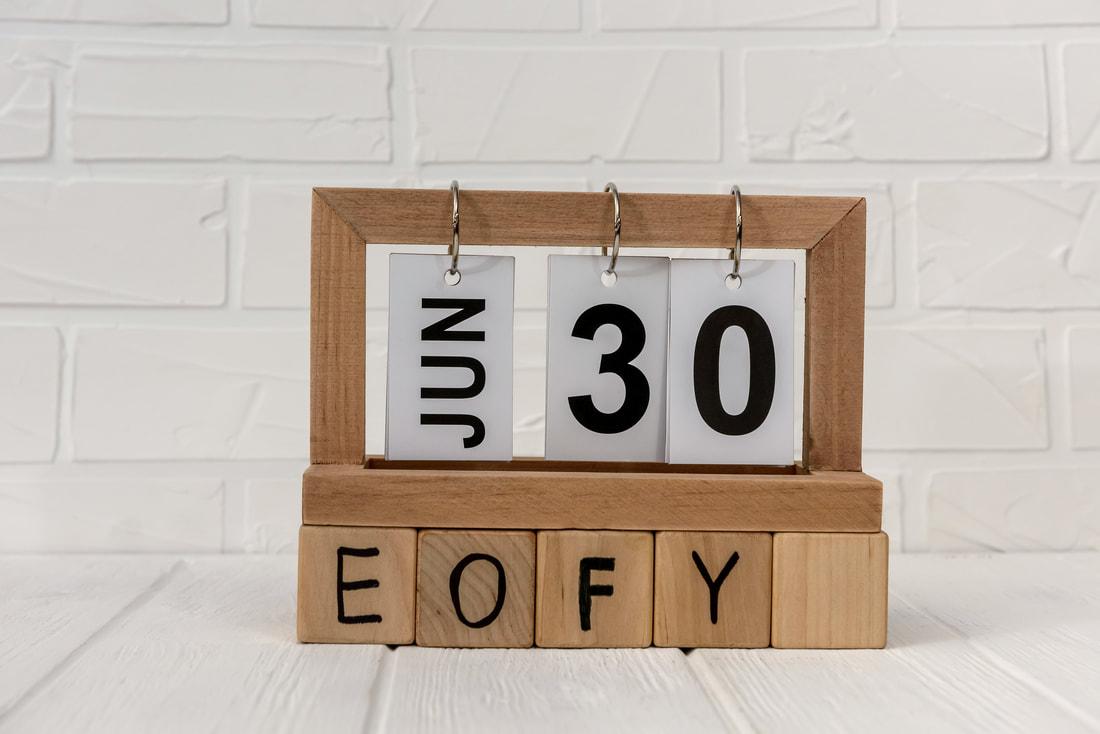
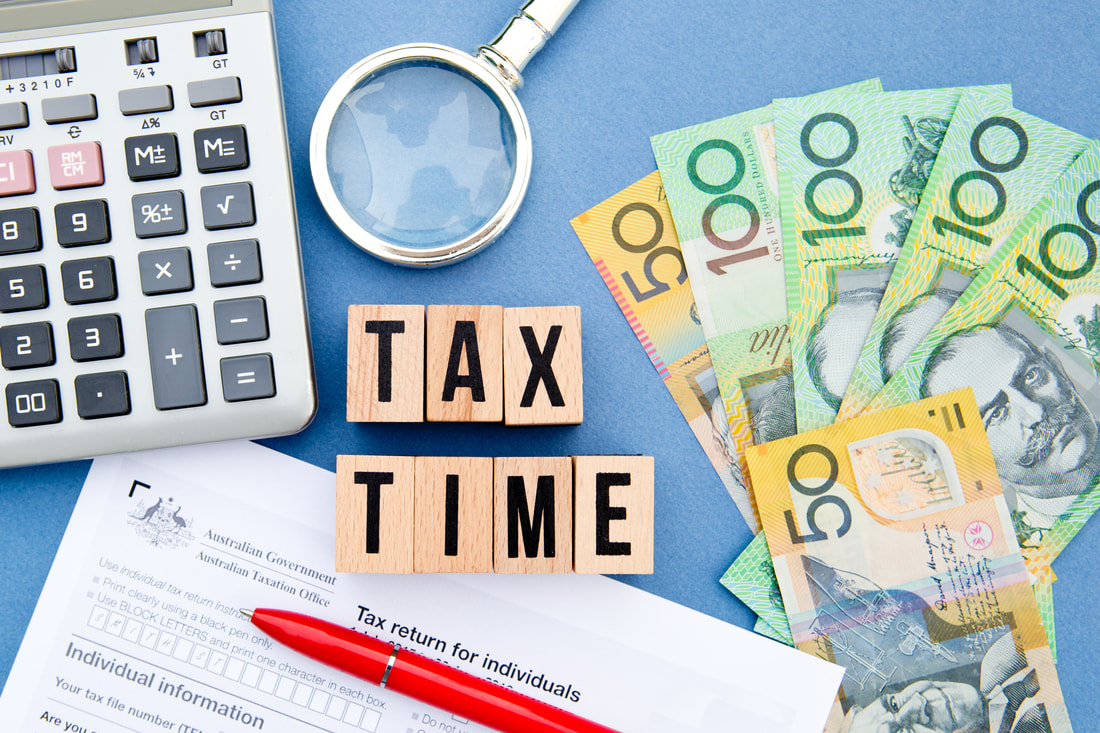



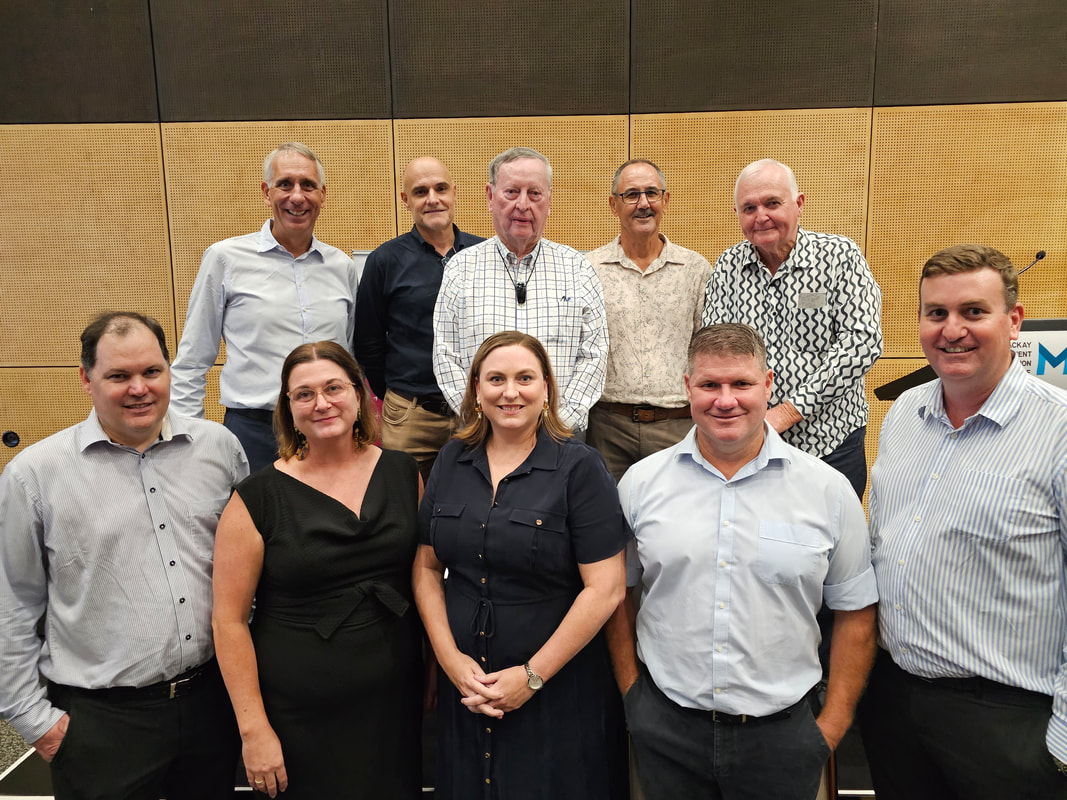
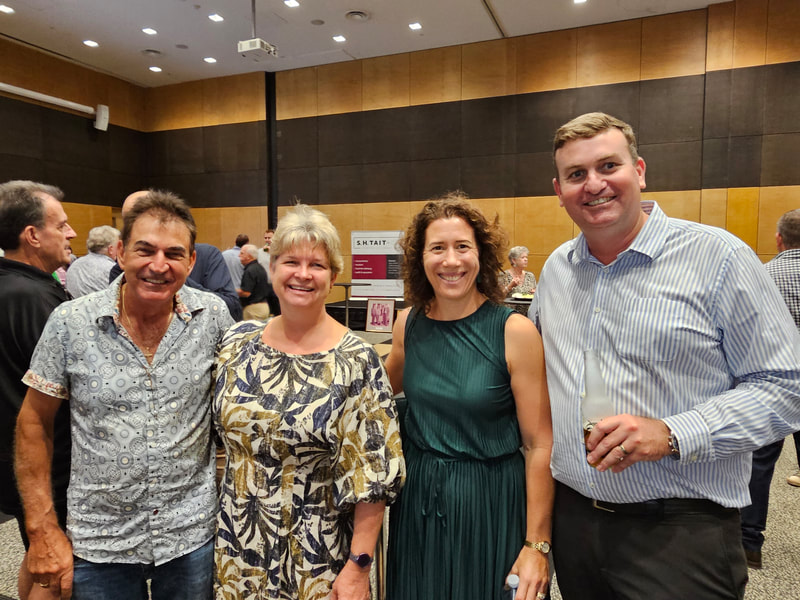
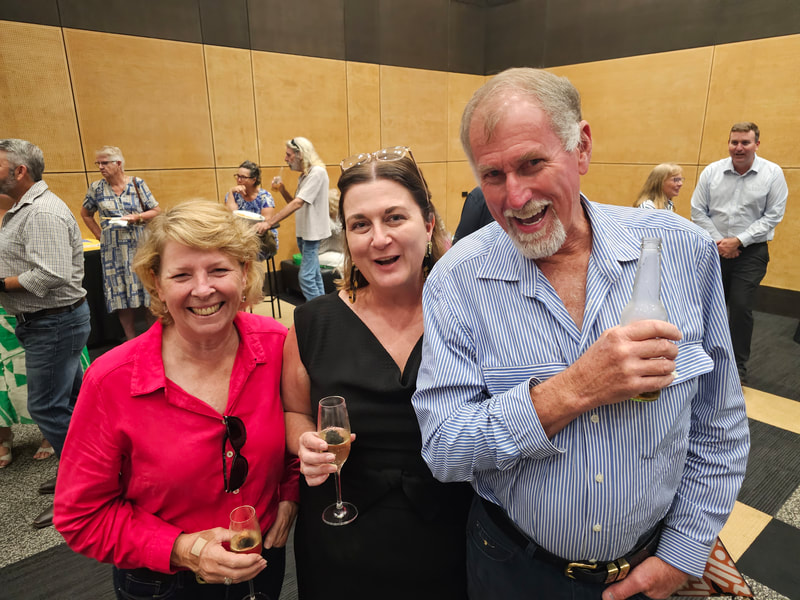
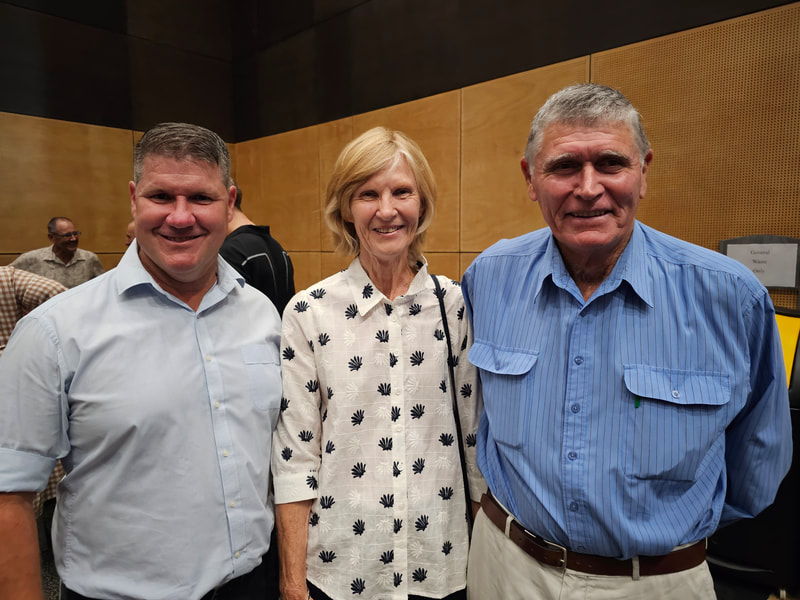
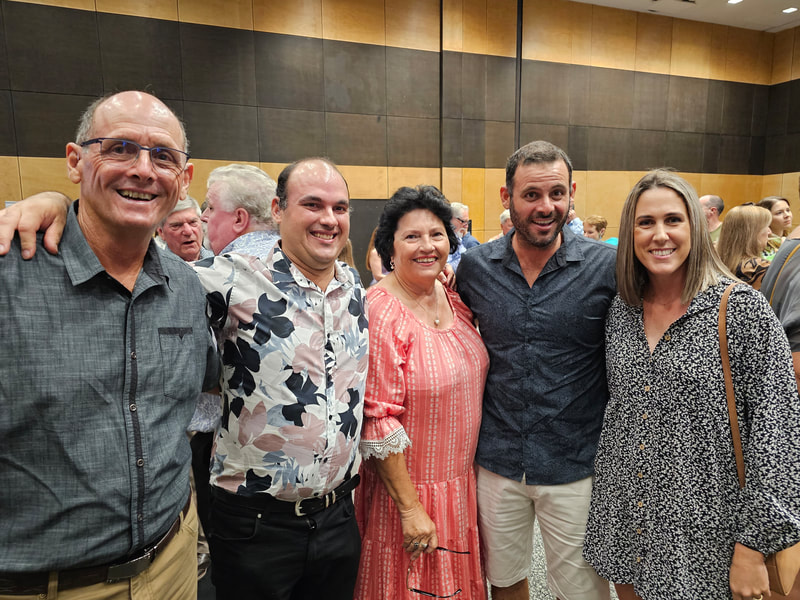

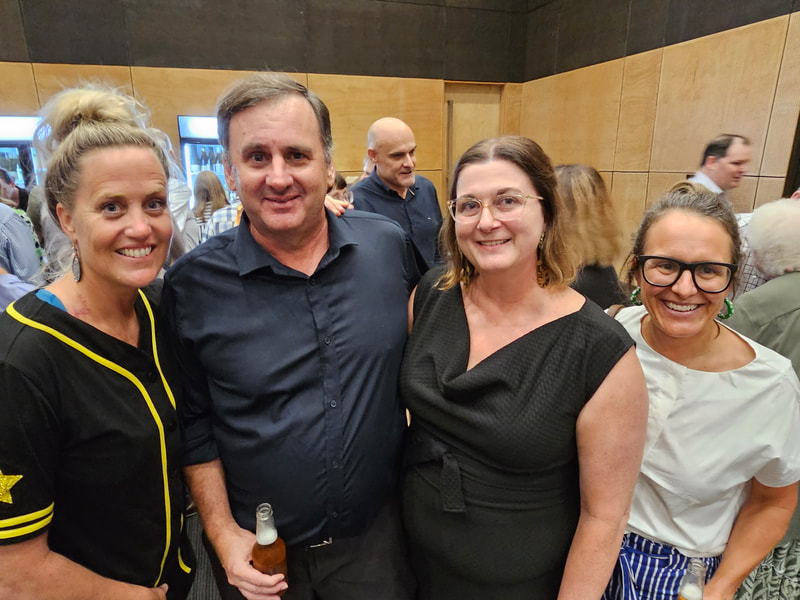




 RSS Feed
RSS Feed